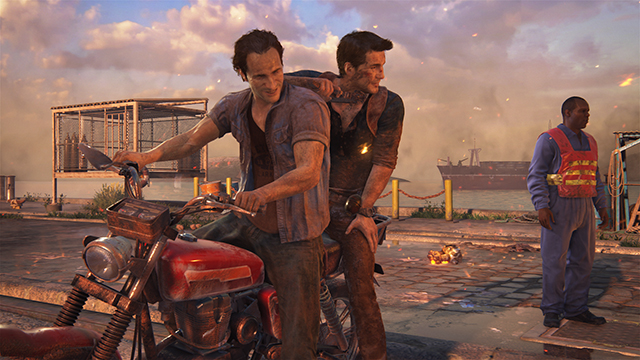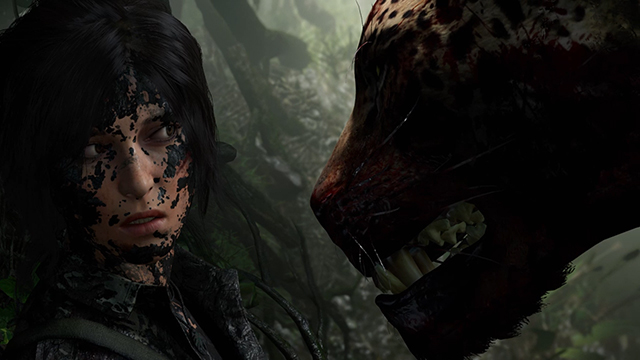Shadow of the Tomb Raider is finally out and marks the end of Lara Croft’s origin trilogy. It’s a divisive game (which we enjoyed) that attempts to show a new side of the titular iconic character that we were reintroduced to in 2013. Game Director Daniel Chayer-Bisson and Senior Producer Mario Chabtini sat down with us at PAX West 2018 to talk all about their latest game, which touches on this new Tomb Raider series, Uncharted, guilt, and more. This interview has minor spoilers for Shadow of the Tomb Raider and Uncharted 4: A Thief’s End.
Game Revolution: Lara seems to have some sense of responsibility in this game. What made you want to have her be the cause of the disasters instead of nature?
Daniel Chayer-Bisson: When you look at the 2013 Tomb Raider, one of the things we were talking about when we went from classic Lara to this new origins story was that we wanted to create a more relatable character. A character that felt real, that felt human, that had flaws and weaknesses and fears. That was very important for us.
So when we moved to Rise [of the Tomb Raider], we evolved on that. We felt that if Tomb Raider 2013 was her being shaped by the world and Rise was her defying the world, then Shadow of the Tomb Raider was about her mastering the world because in the end, she needs to become the Tomb Raider. She needs to understand there are consequence to your actions. Growing in the world and become mature means sacrifice and understanding the consequences and there is responsibility to that.
That is what it means to become the Tomb Raider. It’s not about you be physically capable. That’s part of it. More important is the emotional depth to that that you understand that what you’re doing has consequences that are bigger than you.
And for that, we had to use a trick that I love to do. Because the video game medium can express one type of emotion that no other medium can do: guilt. You cannot have guilt for a hero in a movie that does something wrong. You can only sympathize with them.
But you bringing Lara there, taking the dagger, agreeing with her that it was the right thing to do, and then seeing all these people be killed by the flood. Making this impossible decision makes her even more human and that goes back to what we wanted to do in 2013 and showing how actions have consequences and how she has to deal with that.
Your actions make you feel that guilt. And that was very important for a player to really understand the stakes of what it means to be a Tomb Raider. It has to have massive stakes. And her being human.

GR: This approach reminded me of Uncharted 4 because that game was more about Nate’s journey with his brother. The treasure was incidental. Did you take any direct inspiration from that? Or do you think that’s just where the genre is moving?
Chayer-Bisson: I think we’re moving toward that way for single-player. I love Uncharted and when you get to Uncharted 4, I think what interested me when I played it is that you’re seeing a guy that also had to grow out of the childhood thing of shooting things. And in the end, he has to choose his family.
For Drake, it’s about his family. But for Lara, she’s very young. She’s in her early 20s. It’s like a popstar that becomes a popstar at 16. It has extreme influence over them and they will make massive mistakes because they have no sense of the right and wrong even when [morality] is clear when you have maturity. It’s the same thing when she meets Dr. Dominguez. It is the first time she will ever meet a person as smart as her. But he has an edge over her though. And is that maturity.
So for the inspiration… it’s more about the genre. Games are moving that way more and more. Whether it’s God of War or Red Dead. I think Spider-Man is moving there too. It’s all about emotion. We want to feel and care characters. And that’s why it was a natural progression for us that we needed to end this origin story knowing Lara from inside out.
Mario Chabtini: It’s important that where she stands right now, in terms of emotional state, calls for an emotional compass that’s being shown. So building something around a more character-driven story was really natural at this point.
Click to the next page to hear about adding more personal moments to the story, Logan, the importance of stealth, and more.







